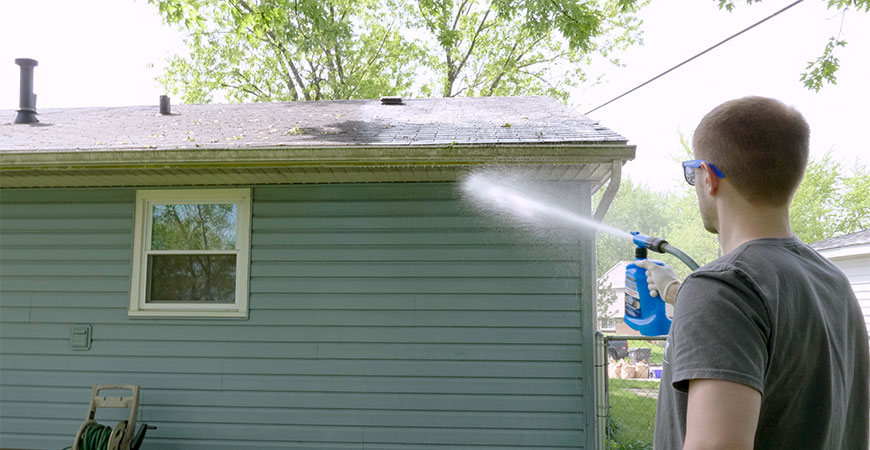Spray the affected area and use a soft bristled brush to gently scrub away the mold sponging up any excess liquid as you clean.
Removing mold from fascia boards and siding.
Avoid metal fiber brushes they can damage the siding.
All types of siding can develop mildew and mold but wood and wood fiber siding can see the worst damage and may be subject to rot and decay if the mildew isn t removed.
Less volatile than chlorine it removes mildew on and below the surface as well as algae dirt and oxidized paint but won t harm plants or clothing.
If you wash the house when the siding doesn t yet have mold or mildew growth you might be able to accomplish it using a garden spray attachment to your garden hose.
Protect larger plants by covering them with plastic sheeting.
Like fascia boards.
How to remove mold and mildew from house siding some simple cleaning solutions and a soft bristled brush can remove mold and mildew from your siding and protect your family and your home s value.
Add a teaspoon of soap to a spray bottle filled with water and shake it up.
If that doesn t work try using distilled white vinegar which kills more than 80 of mold species.
It appears to make mildew vanish but on porous surfaces such as wood or vinyl siding chlorine evaporates too quickly to get to the fungi s roots guaranteeing regrowth.
Scrub with moderate pressure being careful not to push too hard against the flexible vinyl which can break.
Chlorine can also damage foliage and stain clothing.
For larger jobs use 1 cups bleach added to 2 gallons of water.
Scrubbing the siding mold removal usually requires some scrubbing and the best tool to use is a stiff bristle natural fiber scrub brush.
Whether it s mold or mildew your siding is no place to have things growing.
Instead of putting dangerous.
Dry the surface completely with a towel.
Pre wet the surface to be cleaned with water.
Cut back vines or tree branches that contribute to the moisture underneath the eaves.
Oxygen bleach hydrogen peroxide.















































